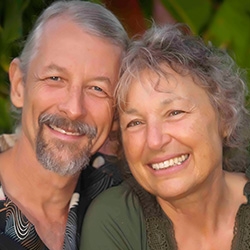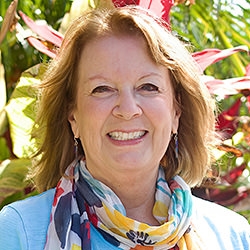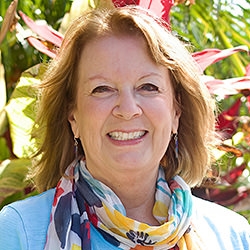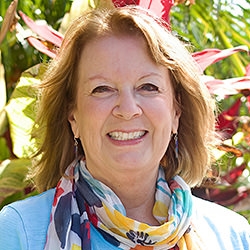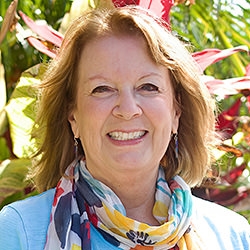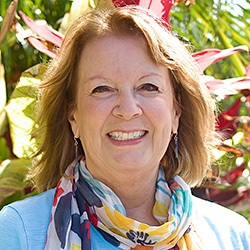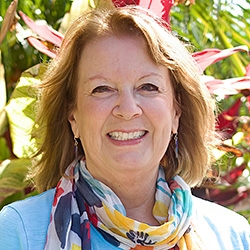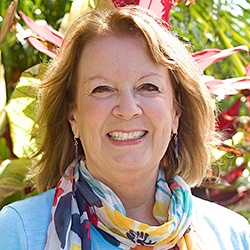
Search Results: community
-
Are we really safer when we put those who harm others behind bars and forget about them? Explore turning our prisons into houses of healing and creating connections that lead to greater safety for our communities.
-
-
-
Ask the Trainer: "Can you share stories of transforming group conflict, or is NVC strictly intended for 'one-on-one' work?"
-
Speaking the truth creates congruence, which creates trust, facilitating understanding and cooperation. Without truth there is no growth in our relationships and community. If this is true, then what keeps us from speaking our truth?
-
This telecourse recording provides an experience with the language, skills and consciousness of NVC applied to mediating all types of conflict whether you are one of the people in conflict or you are supporting others in conflict.
-
Jim and Jori Manske went from poverty to financial independence in 8 years, and they’re making the process they used available to you! Please join them in this inspiring 8-session program to transform your relationship with money, scarcity and abundance.
-
This Introduction to NVC Mediation provides a conceptual overview and experiential taste of the NVC mediation learning model developed by John Kinyon and Ike Lasater.
-
I am writing to you with CELEBRATION on my mind. The NVC Academy has launched its new and improved website!! If you have not checked it out yet, please do so now: https://nvcacademy.com.
-
October always makes me think about Marshall Rosenberg, the founder of Nonviolent Communication. He was born October 6, 1934. If he were still alive today (he died February 7, 2015), he would be 89 years old!
-
Less than 2 weeks ago from the time I’m writing this letter, Hamas militants crossed from Gaza into Israel and killed more than 1,300 people, most of them civilians. Israel then retaliated and killed over 3,000 Gazans, most of them civilians. The death rate continues to increase every day.
-
It is the first day of December and it seems to me as if 2023 went by with a flash. I have felt deep despair about the growing division between people and the devastating impact it has had on human beings, all life in fact, including our planet. And, I have also experienced many moments of joy and satisfaction this year.
-
What can we do when someone tells us we're contributing to a pattern we're genuinely not seeing (nor experiencing)? What makes these patterns visible to some people but not others? This article addresses these things by talking about what to factor in when receiving feedback; handling feedback; responding relationally; paying attention to social location; considering impact; plus, broadening our perspective to bring in greater care and awareness.
-
Trainer Tip: Notice an opportunity today to use honesty as a means to connect with someone else. Consider what type of honesty might stimulate pain in others.
-
Trainer Tip: When we are authentic about who we are, and our preferences, we give everyone and ourselves a better opportunity to open up dialogue about how to meet our collective needs better. We simply express our truth, and in that way we value our own needs as much as those of others.
-
Trainer Tip: Only after we connect to our unmet need can we make sound decisions that will transform our experience. For example, if you feel bored, connect to your unmet needs (eg. need for understanding the relevance, etc) and then look for strategies that will meet them (eg. ask the speaker how this topic relates to our lives).
-
CNVC Certified Trainer Lore Baur asks: "Have you ever seen something happen that made you feel uncomfortable and you didn't know what to do?" That's the "bystander effect:" a well-researched and commonly experienced phenomenon. Training can help you overcome it, enabling you to discern what to do and how to support others in ways that reduce trauma and increase safety.
-
In listening to what our emotions tell us, and embracing what we do not know, we begin the path of courage. Even though our culture tells us not to, revealing our imperfections is where we can deeply connect. Living our lives more courageously honest, can shift us towards inspiring one another. Read on for how some people experienced this in coming together to transform one woman's heroine addiction.
-
A chosen, interdependent world… In most cases, that's sure not the world we live in today, is it. But it could be the world we live in tomorrow. And you can choose to be part of bringing that better world to life – to be part of a gradual, joyful transformation – simply by using the dynamic, living power of Dialogue.
-
- Access, follow and train your intuition: how to know without knowing;
- Navigate difficult situations with care for all through an active awareness of your own power, as well as other sources of power in the room;
- Remain aware of who speaks and who doesn’t, of those whose pain is invisible – and what you can do about it;
- Walk towards someone presenting a challenge to a group you are facilitating, while continuing to hold care for the entire group, and more.





